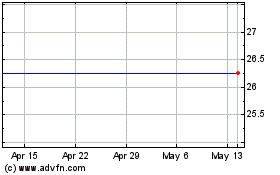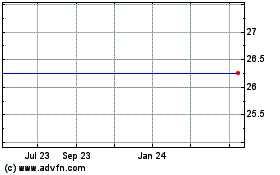2nd UPDATE: Apache To Pay $2.7Bln For Deepwater Explorer Mariner
April 15 2010 - 2:45PM
Dow Jones News
Apache Corp. (APA) said Thursday it will acquire Mariner Energy
Inc. (ME) for $2.7 billion, a move that could help transform the
Houston-based company into the largest independent U.S. oil and gas
company when ranked by production level.
The disclosure comes days after Houston-based Apache agreed to
buy the shallow Gulf of Mexico assets of Devon Energy Corp. (DVN)
for $1.05 billion.
Apache's current production will increase 12.8% to 663,700
barrels of oil equivalent per day after the two acquisitions,
surpassing Devon Energy Corp., which is divesting many assets to
focus on North American onshore production. Other large
independents, so-called because they produce oil and gas but don't
have any refining operations, include Chesapeake Energy Corp.
(CHK), Anadarko Petroleum Corp. (APC), and Occidental Petroleum
Corp.
The Mariner deal highlights the blazing environment for oil and
gas deals. After months of paralysis caused by volatile energy
prices, tight credit and an uncertain economic environment, energy
companies have been buying assets with gusto since the end of last
year. The biggest deal was announced in December, when Exxon Mobil
Corp. (XOM) said it would buy XTO Energy Inc. (XTO) for $31
billion. More recently, BP PLC (BP) bought Devon's deepwater Gulf
of Mexico and offshore Brazil assets for $7 billion, and Sinopec
struck a deal to buy ConocoPhillips' (COP) 9% stake in Canadian oil
sands producer Syncrude for $4.65 billion.
Mariner holders would get 0.17043 share of Apache and $7.80 for
each share of Mariner, valuing the stock at $26.22, a level last
seen when oil and gas prices began their plunge in the second half
of 2008. The $26.22 figure is a 45% premium to Wednesday's closing
price and is on top of the near-doubling the stock has seen the
past year.
The deal is expected to close in the third quarter.
Apache will also assume $1.2 billion of debt. The deal, which
represents Apache's first corporate acquisition in 14 years, allows
the company to gain a strategic position in the deep waters of the
Gulf of Mexico. It "gives Apache a new growth area in the U.S. to
have meaningful oil and gas production over a long term," Apache
Chief Executive G. Steven Farris said in a conference call with
analysts.
Farris said it was the right time to enter the area as new
technologies had reduced the risk and costs of exploration. The
executive said Mariner was the "perfect fit" for Apache because
they have operations in the same areas, such as the shallow waters
of the Gulf and the Permian basin in Texas. Additionally, Mariner
has acreage in Niobrara Shale in Wyoming, an asset that gives
Apache exposure to an emerging region for oil exploration, the
company said.
The premium Apache paying is "unusually high" and it reflects
the perfect fit Mariner represents for the company's portfolio,
says Fadel Gheit, analyst at Oppenheimer & Co. Inc. The
acquisition also consolidates Apache's gradual departure from being
a mainly exploitation company to one willing to take more risks
exploring for new reserves, Gheit said.
"A combination makes sense," as Apache would be able to
"seamlessly integrate (Mariner's) shelf properties," said analysts
with Tudor Pickering Holt in a research note. Tudor Pickering
added, however, that its analysts were "surprised" at the
premium.
Many analysts were also surprised when an Apache employee
inadvertently sent an e-mail late Wednesday, which said the merger
had closed and provided call-in information for Thursday's
conference call. The e-mail was immediately recalled, but Apache
executives acknowledged its effect on the analyst community.
"We can't tell you how pleased we are to confirm you the rumors
of the Mariner transaction that we prompted by our premature email
last night," said Apache president Roger Plank.
Federal disclosure regulations say that unintentional
disclosures to selected numbers of people must be "promptly"
disseminated to the general public. Analysts received the e-mail at
about 6:30 p.m. CDT, and the company's press release was issued at
7:05 a.m. CDT.
Apache spokesman Bill Mintz said the e-mail disclosure was
"inadvertent," and that since it came after the market closed on
Wednesday and the company issued its press release before the
market open the following day, there was "no harm, no foul."
In a note to clients, J.P. Morgan, who was the financial advisor
to Apache, said "the transaction supports the company's focus of
increasing growth of its North America portfolio."
Analysts from Jefferies & Company, Inc. said in a note to
clients that it's unlikely there will be a wave of consolidations
in the Gulf of Mexico as Mariner assets were unique among the
largest producers and because there are few buyers committed to the
area.
Deepwater exploration has been ramping up industry wide as
technology has made doing so less risky. Meanwhile, Mariner had
been looking to boost its onshore operations, in December agreeing
to a $215 million acquisition.
Apache shares were recently trading 1.52% down to $106.4, while
Mariner's shares were 41% up to $25.60.
-By Angel Gonzalez and Isabel Ordonez, Dow Jones Newswires;
angel.gonzalez@dowjones.com
Mariner Energy Inc. (NYSE:ME)
Historical Stock Chart
From May 2024 to Jun 2024

Mariner Energy Inc. (NYSE:ME)
Historical Stock Chart
From Jun 2023 to Jun 2024
